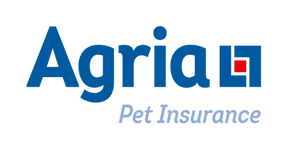Musculoskeletal health refers to the performance of the locomotor system, comprising of muscles, joints, bones, and connective tissues.
09 June 2023
So how can diet help?
Depending on the horse's age and specific circumstances there can be very different causes of MSK health issues and solutions.
Nutritional support can be very influential.
In this blog let’s look at protein!
Horses require the presence of an adequate quantity and quality protein in the diet and essential amino acids.
Protein is fundamental to every process in the body, it's immune system, hormonal regulation and metabolic functions.
Protein is made up of Essential Amino Acids (EAA's) which must be present in the diet as can only be obtained from food.
Non-Essential Amino Acids can be created within the animal as long as there are adequate amounts of Essential Amino Acids.
Proteins can be classified as globular, such as haemoglobin, which transports oxygen through the bloodstream or Fibrous proteins, such as keratin, found in hair, skin & hooves, Collagen, the connective tissue of skin, tendons and bones and Myosin which is a muscle fibre protein. Protein also makes defence mechanisms for a strong immune system,.
The horse's body constantly breaks down the protein from the process of living and constantly needs a new supply of new protein to repair itself. When horses are required to jump, collect, gallop in sports like eventing, dressage, show jumping, racing or even just hacking the body is subject to wear and tear. Protein is the building blocks for repairing tendons, ligaments, bones! If they do not get enough EAA's and their reserves are empty, then lameness and sickness is more likely.
So how do we feed our horses good protein?
- Protein is available in good high-quality grass, hay and haylage.
- Other sources include, alfalfa, soybean, beet pulp, flaxseed, and linseed.
- Supplementation of the diet with good high-quality vitamins & minerals. Top EAA's in a supplement should be:
- Lysine
- Threonine
- Leucine
- Arginine
- Histidine
- Tryptophan
- Valine
- Isoleucine
- Methionine
- Phenylalanine
In general, growing horses 1-2 years old need around 10-15% more protein than mature horses. You should feed a highly digestible feed, without going overboard on sugar and starch. Alongside good quality hay, haylage and grass.
A senior horse or horses over 20 years, require a diet of 12-16% protein. As horses get older their digestive system changes which inhibits their digestive systems ability to extract nutrients, especially protein from their food.
For overweight horses, they are better to be fed lower quality hay in terms of nutritional density so can therefore eat more of it to so would therefore require the vitamin/mineral supplement to be added to their diet.
